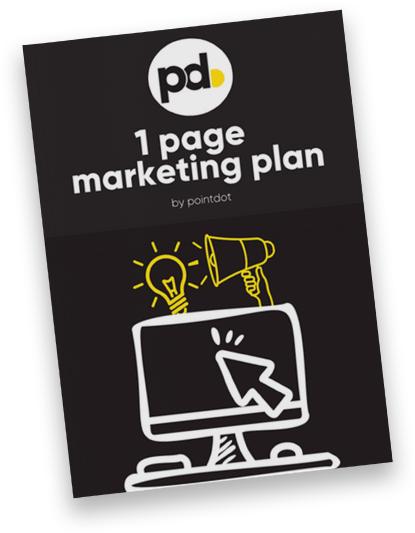
Online presence is vital for modern brands. Statistics suggest that 76% of consumers consider this factor before visiting a business store. That means you’ll likely get more clients if your company’s information is easily accessible online.
One of the main factors that can enhance this aspect is search engine optimization (SEO). It involves increasing your brand’s ranking on the search engine results pages (SERPs). You can accomplish this by optimizing your web development strategies, building your Google My Business profile, and advertising on social media.
Content creation, such as blogging and vlogging, is also a massive contributor to this project. But why is blogging important for SEO? This article will discuss everything you need to know.
1. It allows the creation of up-to-date content
Users are always looking for valuable information regarding their concerns or products or services they’re interested in. There’s stiff competition for the attention of these readers, who also aren’t willing to settle for less. As such, search engine algorithms, particularly Google’s, favour websites that provide fresh and relevant content.
Given the dynamics in most industries today, it can be challenging to provide up-to-date information throughout. For instance, the global economic environment is changing rapidly. So, what you post today may be irrelevant after a few weeks.
These changes can affect your SEO performance depending on your strategy. For example, your SERP ranking may drop if you don’t keep up with the news, but updating your content will likely attract more readers and potential customers.
So, how does SEO blogging help? For one, it allows you to consistently publish your content and update any old information. For instance, if you specialize in football, any article you post this month will likely include relevant information, such as things that occurred during the past few weeks.
2. It helps you integrate keywords
Keywords are an essential component of SEO. They help search engines understand what your website is about and what kind of content you provide.
In addition, search engines like Google use keywords to point users to relevant sources of information. For example, if one searches ‘how to renovate your home’, the algorithm will base its results on ‘renovate’ and ‘home’.
With this in mind, if you want your website to rank for these keywords, you’ll need to include them in your content. But you must be strategic, especially now that Google is constantly rolling out strict rules.
Here are some tips to help you integrate target keywords effectively through blogging:
- Research keywords and identify the relevant ones using online tools.
- Choose a primary keyword focus on for each blog post. It’ll help you maintain the much-needed relevance in your SEO strategy.
- Include the primary keyword in your blog’s title, URL, meta description, and content body.
- Use variations of your primary keyword throughout the blog post, including long-tail and related keywords. Doing so can help you rank for a broader range of search terms.
- Optimize the images on your blog post by adding alt tags that include your primary keyword.
- Link to other blog posts on your website related to your primary keyword. It’s an effective way of making search engines understand the context of your content.
However, be careful not to stuff your articles with too many keywords, as it’s against Google SEO rules. Doing so can negatively impact your efforts.
3. It enhances website traffic
Blogging can help increase website traffic by providing valuable content that attracts visitors to your website. Moreover, regularly publishing high-quality blog posts can increase the chances of your website being discovered by search engines and shared on social media platforms, leading to increased leads and sales for your business. But again, you need a proper strategy to leverage the power of blogging in traffic generation.
It all begins with your research about the selected subject. First, is the topic relevant to your website’s primary purpose? Do your blogs offer new content besides what other publishers have already covered?
The quality of your articles plays a vital role in attracting more viewers. If you write engaging content, more readers will flock to your website, enhancing your brand’s online presence.

4. It helps increase dwell time and reduces bounce rates
Generating traffic is one thing, but making it count is where many web admins struggle. Once you’ve attracted potential readers, you want them to spend as much time on your site as possible. This dwell time and the users’ engagement with your content are also essential factors in SEO. They can help search engines determine the quality of your site. A website with a high dwell time and low bounce rate generally ranks higher on SERPs.
But how does blogging help you accomplish this mission? By producing high-quality and engaging blogs, you can keep users on your site longer and encourages them to explore further. And as your site’s bounce rate reduces, you establish yourself as a valuable resource to search engine users. First-time visitors are more likely to return in the future, increasing your website’s overall authority and SEO performance.
5. It boosts internal linking opportunities
Internal linking is an essential SEO strategy that helps search engines understand the structure of your website and establish the hierarchy of information. It also allows users to navigate your site more efficiently.
By regularly creating content for your blog, you are also generating more opportunities to link your articles together. Organically connecting your blog posts through internal links can help you create a comprehensive content structure that search engines can index efficiently. In addition, proper internal link building helps distribute link authority and equity throughout your site, boosting your SEO score.
6. It encourages natural backlink generation
Backlinks (links from external websites to yours) are critical in determining a website’s domain authority and search engine ranking. High-quality, natural backlinks signal search engines that your content is valuable and relevant.
When you create informative blogs, you increase the chances of other publishers linking to your content. And to enhance this benefit, consistently produce high-quality and unique content relevant to your industry and audience. As mentioned earlier, most industries today are changing quickly. Therefore, users prioritize the most recent articles when looking for resources. Blogging lets you constantly update your portfolio and encourage other bloggers to link to you as a reliable reference.
These natural backlinks can help boost your domain authority, impacting your overall SEO performance.
7. It enables social media sharing
The relationship between social media and SEO is still up for debate. But there’s no denying that social media presence can significantly impact your website’s online visibility and traffic.
The number of registered social media users today is over 4.2 billion, more than half the global population. Facebook leads the way with about 3 billion monthly users, with YouTube, WhatsApp, and Instagram surpassing the 2-billion mark.
Sharing blog content on any of the 15 major social media platforms exposes it to a broader audience. As a result, it increases the likelihood of attracting more visitors.
Here are some tips to promote your blog content on social media channels:
- Integrate blog social sharing buttons to encourage users to share the content.
- Use high-quality and attention-grabbing visuals, especially on platforms like Instagram.
- Share your content multiple times to beat the dynamic nature of social media feeds and maximize your post’s reach.
- Research relevant hashtags and include them in your posts. Also, consider mentioning influencers, experts, or businesses when sharing your content.
- Partner with influencers who understand your niche and the goals of your brand.
- Engage with your audience to create personalized relationships. You can do this by participating in conversations in the comment sections. Also, ensure you respond to any questions as soon as possible.
- Monitor engagements, measure your success, and adjust strategies accordingly.
Increased social media traffic can increase organic traffic, boosting your SEO efforts. Remember, the leads you receive through organic traffic generation are more likely to convert.
8. It helps improve user experience
Although user experience might not directly impact SEO, it is crucial for retaining and engaging visitors on your site. For one, a positive user experience makes satisfied visitors more likely to interact and dwell longer on your website.
As a good start, well-structured, easy-to-navigate, skimmable, and mobile-friendly blog content can contribute to a better user experience. Blogs also allow you to be more conversational and less formal. As such, it will enable you to connect with your audience in a more accessible and friendly tone. These factors contribute to a better user experience, indirectly improving your website’s SEO performance.
Conclusion
Blogging is more than a platform to share your thoughts and opinions, promote your products and services, and share relevant and valuable information with your audience. When correctly leveraged, blogging can be a powerful tool for boosting your website’s SEO performance, attracting more organic traffic, and enhancing your online reputation.
To reap the full benefits of blogging for SEO, consistently create high-quality, valuable, and engaging content targeting well-researched long-tail keywords. Remember that SEO isn’t a one-and-done deal – it requires ongoing, strategic efforts.
Incorporating blogging as part of your long-term SEO strategy can open up endless possibilities.

1 page marketing plan.
Since 2016, pointdot has grown by adopting the same marketing principles in this 1-page plan, into our own agency and business. We have grown from a 2-person team, to a team of 11 super talented marketers. Download your free copy of this brilliant 1-page marketing plan and begin growing your business!

